Shows
 bio/acc PodcastThe Ethics of Human Germline Editing with Francoise BaylisIn this episode, I speak with Professor Francoise Baylis, a renowned Canadian bioethicist whose work lies at the intersection of applied ethics, health policy, and practice. We talk about the ethics of research on human embryos -- at what date the line should be drawn -- and whether it practically and morally makes sense to allow for human germline editing. 2025-06-1944 min
bio/acc PodcastThe Ethics of Human Germline Editing with Francoise BaylisIn this episode, I speak with Professor Francoise Baylis, a renowned Canadian bioethicist whose work lies at the intersection of applied ethics, health policy, and practice. We talk about the ethics of research on human embryos -- at what date the line should be drawn -- and whether it practically and morally makes sense to allow for human germline editing. 2025-06-1944 min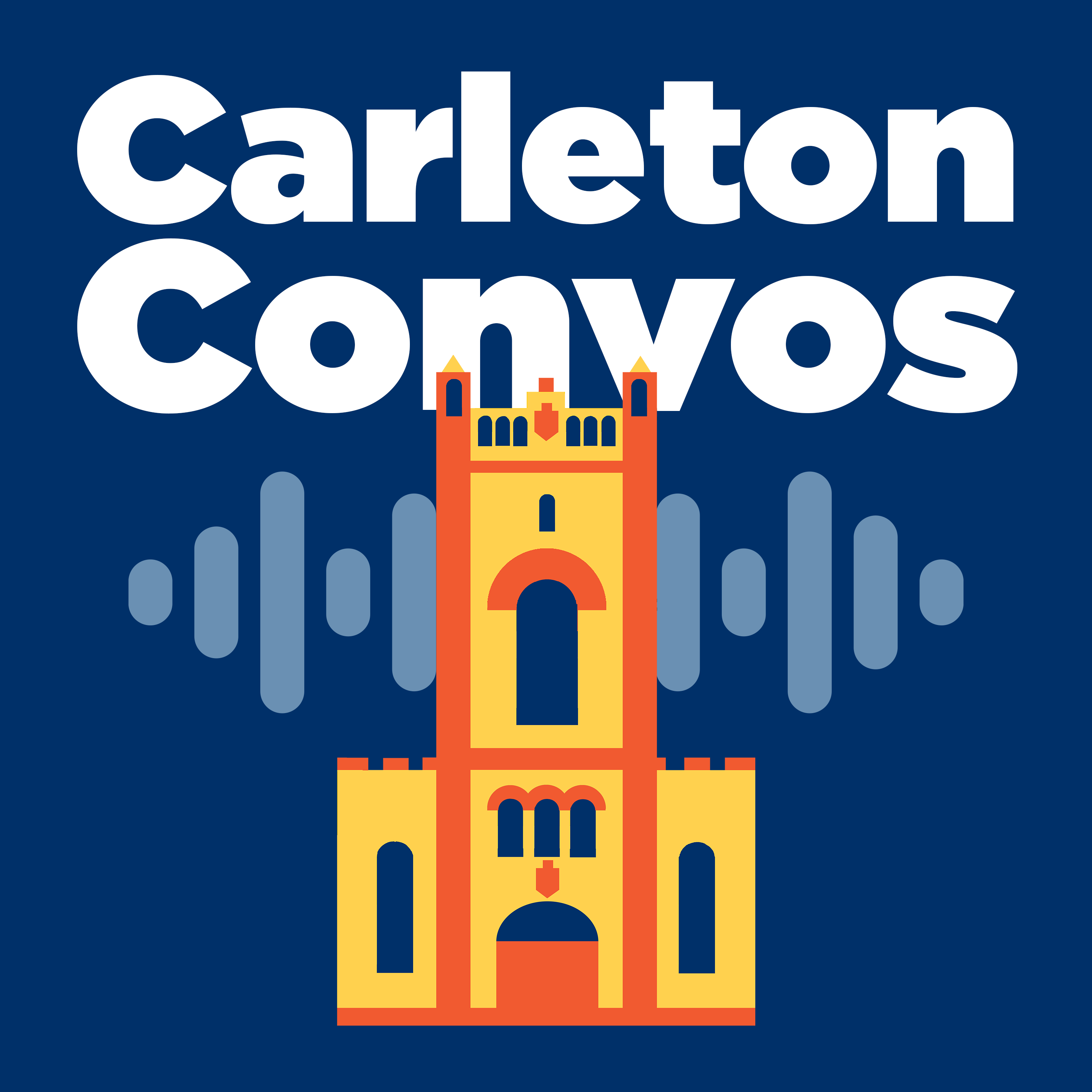 Carleton ConvosCarleton Convo with Françoise Baylis | April 5, 2024Françoise Baylis CM, ONS, PhD, FRSC, FCAHS, FISC delivered the Carleton convocation address on Friday, April 5 from 10:50 to 11:50 a.m. in Skinner Chapel. Her address, “Altered Inheritance: The Era of Designer Babies,” discussed the ethics surrounding human genome editing and delved into her work on the subject.
Baylis is distinguished research professor, emerita at Dalhousie University in Nova Scotia, Canada. She is a philosopher whose innovative work in bioethics, at the intersection of policy and practice, has stretched the boundaries of the field. Her work challenges people to think broadly and deeply about the direction of healt...2024-04-081h 01
Carleton ConvosCarleton Convo with Françoise Baylis | April 5, 2024Françoise Baylis CM, ONS, PhD, FRSC, FCAHS, FISC delivered the Carleton convocation address on Friday, April 5 from 10:50 to 11:50 a.m. in Skinner Chapel. Her address, “Altered Inheritance: The Era of Designer Babies,” discussed the ethics surrounding human genome editing and delved into her work on the subject.
Baylis is distinguished research professor, emerita at Dalhousie University in Nova Scotia, Canada. She is a philosopher whose innovative work in bioethics, at the intersection of policy and practice, has stretched the boundaries of the field. Her work challenges people to think broadly and deeply about the direction of healt...2024-04-081h 01 Chelsea on CHEDThe ethics of conducting research on synthetic human embryos past the 14-day limitDr. Françoise Baylis, Distinguished Research Professor, Emerita, Dalhousie University2023-08-1613 min
Chelsea on CHEDThe ethics of conducting research on synthetic human embryos past the 14-day limitDr. Françoise Baylis, Distinguished Research Professor, Emerita, Dalhousie University2023-08-1613 min ISC PresentsFreedom and responsibility in science in the 21st century: episode 5, emerging technologiesIn this fifth episode, Professor Françoise Baylis (philosopher and bioethicist at Dalhousie University) and Ocean Mercier (Associate Professor at the School of Māori Studies at Victoria University of Wellington) explore new technologies, the associated risks and benefits they bring in science, considering ethical implications and insights from an indigenous perspective.What do developments in fields like gene editing, machine learning or climate engineering mean for scientific responsibility? Tune in as our guests discuss discusses the need for limits and regulation in the use and development of technologies, highlighting the importance of indigenous perspectives and values in...2023-05-2910 min
ISC PresentsFreedom and responsibility in science in the 21st century: episode 5, emerging technologiesIn this fifth episode, Professor Françoise Baylis (philosopher and bioethicist at Dalhousie University) and Ocean Mercier (Associate Professor at the School of Māori Studies at Victoria University of Wellington) explore new technologies, the associated risks and benefits they bring in science, considering ethical implications and insights from an indigenous perspective.What do developments in fields like gene editing, machine learning or climate engineering mean for scientific responsibility? Tune in as our guests discuss discusses the need for limits and regulation in the use and development of technologies, highlighting the importance of indigenous perspectives and values in...2023-05-2910 min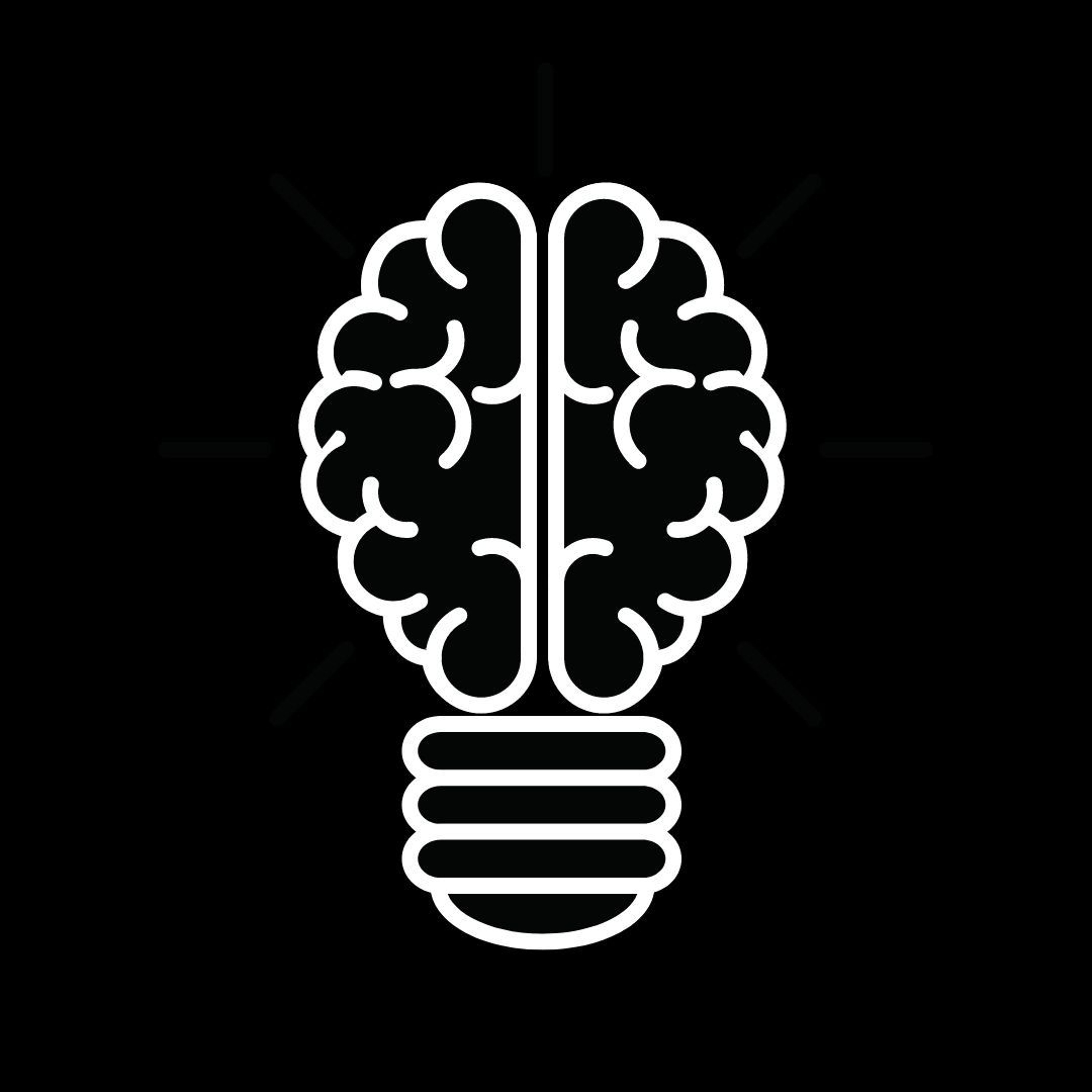 Rekindi PodcastFrançoise Baylis: The Future of Humanity - Ethical Dilemmas of Gene Editing / Episode #39In this enlightening Rekindi episode, we immerse ourselves in the intricate world of bioethics and gene editing with esteemed expert, Françoise Baylis.
As a leading authority on the ethical implications of biotechnology, Françoise offers a thought-provoking exploration of CRISPR gene editing, and its potential benefits and risks. Get ready for an engaging discussion that bridges the gap between science, ethics, and public policy.
Don't miss this incredible chance to gain insights into the complex intersection of emerging biotechnologies and ethics from a renowned scholar in the field!
Join us as we discuss:
- Françoise's most challenging areas of...2023-05-161h 18
Rekindi PodcastFrançoise Baylis: The Future of Humanity - Ethical Dilemmas of Gene Editing / Episode #39In this enlightening Rekindi episode, we immerse ourselves in the intricate world of bioethics and gene editing with esteemed expert, Françoise Baylis.
As a leading authority on the ethical implications of biotechnology, Françoise offers a thought-provoking exploration of CRISPR gene editing, and its potential benefits and risks. Get ready for an engaging discussion that bridges the gap between science, ethics, and public policy.
Don't miss this incredible chance to gain insights into the complex intersection of emerging biotechnologies and ethics from a renowned scholar in the field!
Join us as we discuss:
- Françoise's most challenging areas of...2023-05-161h 18 MindUnplugged Show with Dragos RaduS3 - E1 - Dr. Françoise Baylis - The Ethical Implications of CRISPR and BeyondWelcome to the latest episode of MindUnpluggedShow, where we delve into the fascinating world of CRISPR technology with the renowned bioethicist Dr. Françoise Baylis.About the Guest: Dr.Françoise Baylis is a philosopher and a leading voice in bioethics, pushing the boundaries of the field, challenging us to think deeply about the intersection of health, science, and biotechnology. Her innovative research focuses on human genome modification, assisted human reproduction, research involving women,and COVID-19. Dr.Baylis brings her ethical sensibility, theory, and common sense to a wide range of public issues.She is...2023-04-011h 01
MindUnplugged Show with Dragos RaduS3 - E1 - Dr. Françoise Baylis - The Ethical Implications of CRISPR and BeyondWelcome to the latest episode of MindUnpluggedShow, where we delve into the fascinating world of CRISPR technology with the renowned bioethicist Dr. Françoise Baylis.About the Guest: Dr.Françoise Baylis is a philosopher and a leading voice in bioethics, pushing the boundaries of the field, challenging us to think deeply about the intersection of health, science, and biotechnology. Her innovative research focuses on human genome modification, assisted human reproduction, research involving women,and COVID-19. Dr.Baylis brings her ethical sensibility, theory, and common sense to a wide range of public issues.She is...2023-04-011h 01 Open to DebateShould We Use Gene Editing to Make Better Babies?A genetic disease runs in your family. Your doctor tells you that, should you wish to have a child, that child is likely to also carry the disease. But a new gene-editing technology could change your fate. It could ensure that your baby is -- and remains -- healthy. What do you do? It’s is not without its perils. Critics say the technology will exacerbate inequality, pressure all parents (and nations) into editing their children to stay competitive, and meddle with the most basic aspect of our humanity. So, should we use gene editing to make better babies? 2022-10-0753 min
Open to DebateShould We Use Gene Editing to Make Better Babies?A genetic disease runs in your family. Your doctor tells you that, should you wish to have a child, that child is likely to also carry the disease. But a new gene-editing technology could change your fate. It could ensure that your baby is -- and remains -- healthy. What do you do? It’s is not without its perils. Critics say the technology will exacerbate inequality, pressure all parents (and nations) into editing their children to stay competitive, and meddle with the most basic aspect of our humanity. So, should we use gene editing to make better babies? 2022-10-0753 min Podcast or Perish040: Francoise BaylisProf. Françoise Baylis is a renowned bioethicist and recipient of this year’s Killam Prize in the humanities. Her work on the ethics of gene editing and other technologies related to human reproduction offers clear guidance and thought-provoking critical insights into an area of research that is not only on the cutting edge of science, but tied to the most profound emotions of women and their partners who are trying to have children.2022-10-0345 min
Podcast or Perish040: Francoise BaylisProf. Françoise Baylis is a renowned bioethicist and recipient of this year’s Killam Prize in the humanities. Her work on the ethics of gene editing and other technologies related to human reproduction offers clear guidance and thought-provoking critical insights into an area of research that is not only on the cutting edge of science, but tied to the most profound emotions of women and their partners who are trying to have children.2022-10-0345 min Open to Debate#199 - Should We Use Gene Editing to Make Better Babies?A genetic disease runs in your family. Your doctor tells you that, should you wish to have a child, that child is likely to also carry the disease. But a new gene-editing technology could change your fate. It could ensure that your baby is -- and remains -- healthy. What do you do? It’s is not without its perils. Critics say the technology will exacerbate inequality, pressure all parents (and nations) into editing their children to stay competitive, and meddle with the most basic aspect of our humanity. So, should we use gene editing to make better babies? 2022-02-1853 min
Open to Debate#199 - Should We Use Gene Editing to Make Better Babies?A genetic disease runs in your family. Your doctor tells you that, should you wish to have a child, that child is likely to also carry the disease. But a new gene-editing technology could change your fate. It could ensure that your baby is -- and remains -- healthy. What do you do? It’s is not without its perils. Critics say the technology will exacerbate inequality, pressure all parents (and nations) into editing their children to stay competitive, and meddle with the most basic aspect of our humanity. So, should we use gene editing to make better babies? 2022-02-1853 min TOA ON AIRThe promise (and potential problems) of genetic engineering. With Francoise Baylis.Genetic engineering may sound like the stuff of sci-fi, but is in fact more relevant than ever.Francoise Baylis is a leading bioethicist, research professor at Dalhousie University, and author of "Altered Inheritance: CRISPR and the Ethics of Human Genome Editing." Her work is renowned for challenging of how we think about health, science, and biotechnology. On this episode, Baylis joins Niko Woischnik to discuss the current state of genetic modification technologies in humans, the limits of what it can accomplish, and the ethical questions surrounding designer babies. Additionally, she stresses the importance of considering w...2021-12-0750 min
TOA ON AIRThe promise (and potential problems) of genetic engineering. With Francoise Baylis.Genetic engineering may sound like the stuff of sci-fi, but is in fact more relevant than ever.Francoise Baylis is a leading bioethicist, research professor at Dalhousie University, and author of "Altered Inheritance: CRISPR and the Ethics of Human Genome Editing." Her work is renowned for challenging of how we think about health, science, and biotechnology. On this episode, Baylis joins Niko Woischnik to discuss the current state of genetic modification technologies in humans, the limits of what it can accomplish, and the ethical questions surrounding designer babies. Additionally, she stresses the importance of considering w...2021-12-0750 min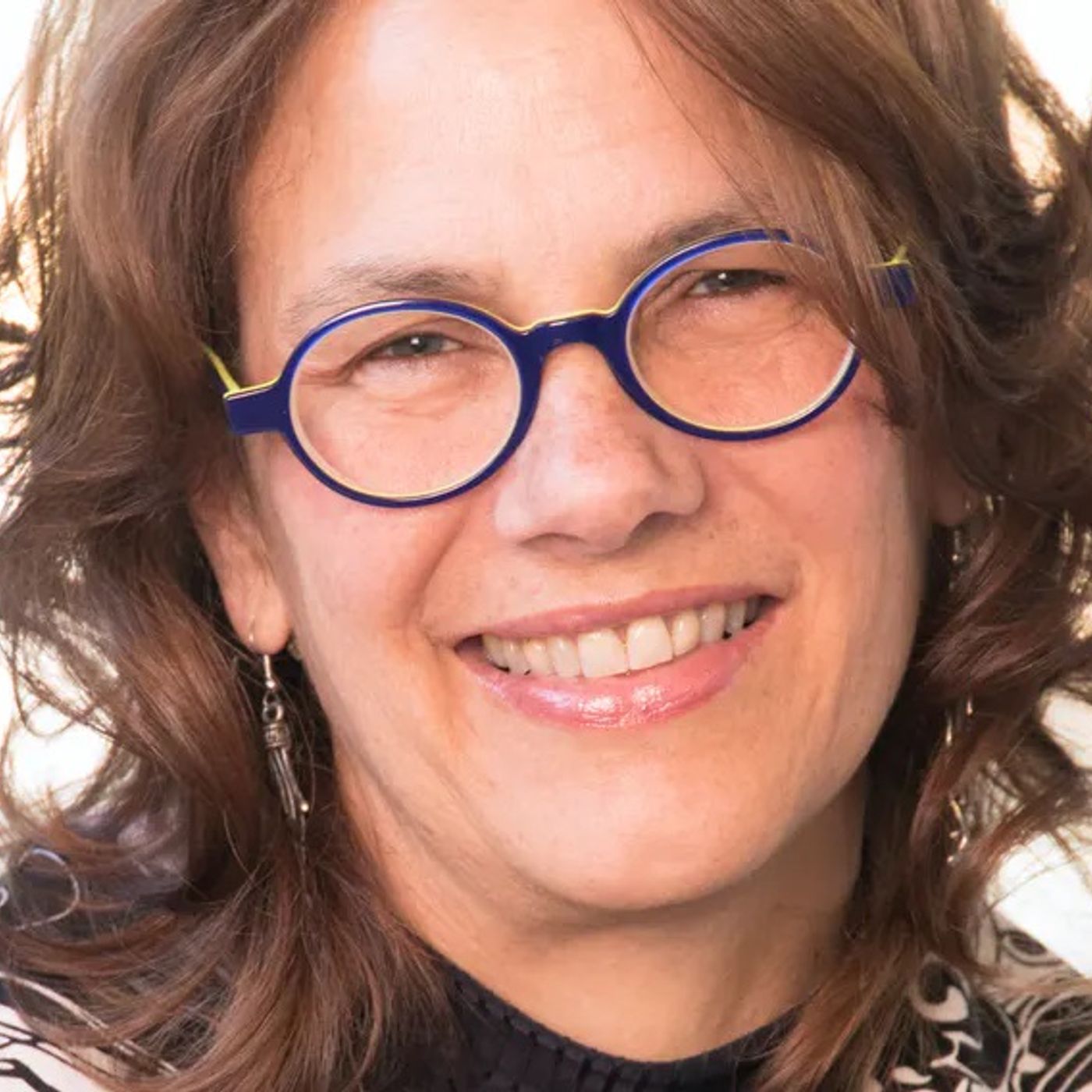 Thinking Out Loud with Sheldon MacLeodAn argument against vaccine passportsThe majority of people who are fully immunized are likely to tell you their vaccination status. But for those who can't or won't take the shot, it's a different story. The promise to look into a Vaccine Passport by Liberal leader Iain Rankin has moved the topic from public health into the political world. And for Bioethisist and Dalhousie Professor Francoise Baylis, there are compelling reasons to have tough conversations before moving ahead with this plan.2021-08-1014 min
Thinking Out Loud with Sheldon MacLeodAn argument against vaccine passportsThe majority of people who are fully immunized are likely to tell you their vaccination status. But for those who can't or won't take the shot, it's a different story. The promise to look into a Vaccine Passport by Liberal leader Iain Rankin has moved the topic from public health into the political world. And for Bioethisist and Dalhousie Professor Francoise Baylis, there are compelling reasons to have tough conversations before moving ahead with this plan.2021-08-1014 min The Richard Syrett ShowThe Richard Syrett Show - August 9, 2021 - Proof-Of-Immunity Cards, Barack Obama’s Birthday Bash, & Muslim Conference Featuring Anti-SemiteCatch up on what you missed on an episode of The Richard Syrett Show. Author of "Altered Inheritance", Philosopher, & University Research Professor at Dalhousie University, Dr. Francoise Baylis explains why Canadians should be fighting non-stop proof-of-immunity cards. Dr. Patrick Phillips joins us in our Health/Medical segment. Conservative author, columnist, & host of “The Drew Allen Show” podcast, Drew Thomas Allen talks about Barack Obama’s big birthday bash. Also, President and CEO, the Centre for Israel and Jewish Affairs, (CIJA) Shimon Koffler Fogel on a Muslim conference featuring a speaker, Tareq Al-Suwaidan, who has been accused of antisemitism. 2021-08-101h 27
The Richard Syrett ShowThe Richard Syrett Show - August 9, 2021 - Proof-Of-Immunity Cards, Barack Obama’s Birthday Bash, & Muslim Conference Featuring Anti-SemiteCatch up on what you missed on an episode of The Richard Syrett Show. Author of "Altered Inheritance", Philosopher, & University Research Professor at Dalhousie University, Dr. Francoise Baylis explains why Canadians should be fighting non-stop proof-of-immunity cards. Dr. Patrick Phillips joins us in our Health/Medical segment. Conservative author, columnist, & host of “The Drew Allen Show” podcast, Drew Thomas Allen talks about Barack Obama’s big birthday bash. Also, President and CEO, the Centre for Israel and Jewish Affairs, (CIJA) Shimon Koffler Fogel on a Muslim conference featuring a speaker, Tareq Al-Suwaidan, who has been accused of antisemitism. 2021-08-101h 27 Open to Debate with David MoscropShould we adopt vaccine certification programs?In Canada and around the world, anxious, weary populations are looking forward to returning to something that will approximate normal life. That return is predicated on, among other things, mass Covid-19 vaccination efforts that continue along slow and steady.
As more of us get the jab, states, including Canada, are considering vaccine certification programs for domestic use, foreign travel, or both. But concerned individuals, including health, privacy, and social science experts, are raising a number of concerns with the idea. While a vaccine “passport” might intuitively seem like a good idea, it’s fraught with risks and trade...2021-04-2744 min
Open to Debate with David MoscropShould we adopt vaccine certification programs?In Canada and around the world, anxious, weary populations are looking forward to returning to something that will approximate normal life. That return is predicated on, among other things, mass Covid-19 vaccination efforts that continue along slow and steady.
As more of us get the jab, states, including Canada, are considering vaccine certification programs for domestic use, foreign travel, or both. But concerned individuals, including health, privacy, and social science experts, are raising a number of concerns with the idea. While a vaccine “passport” might intuitively seem like a good idea, it’s fraught with risks and trade...2021-04-2744 min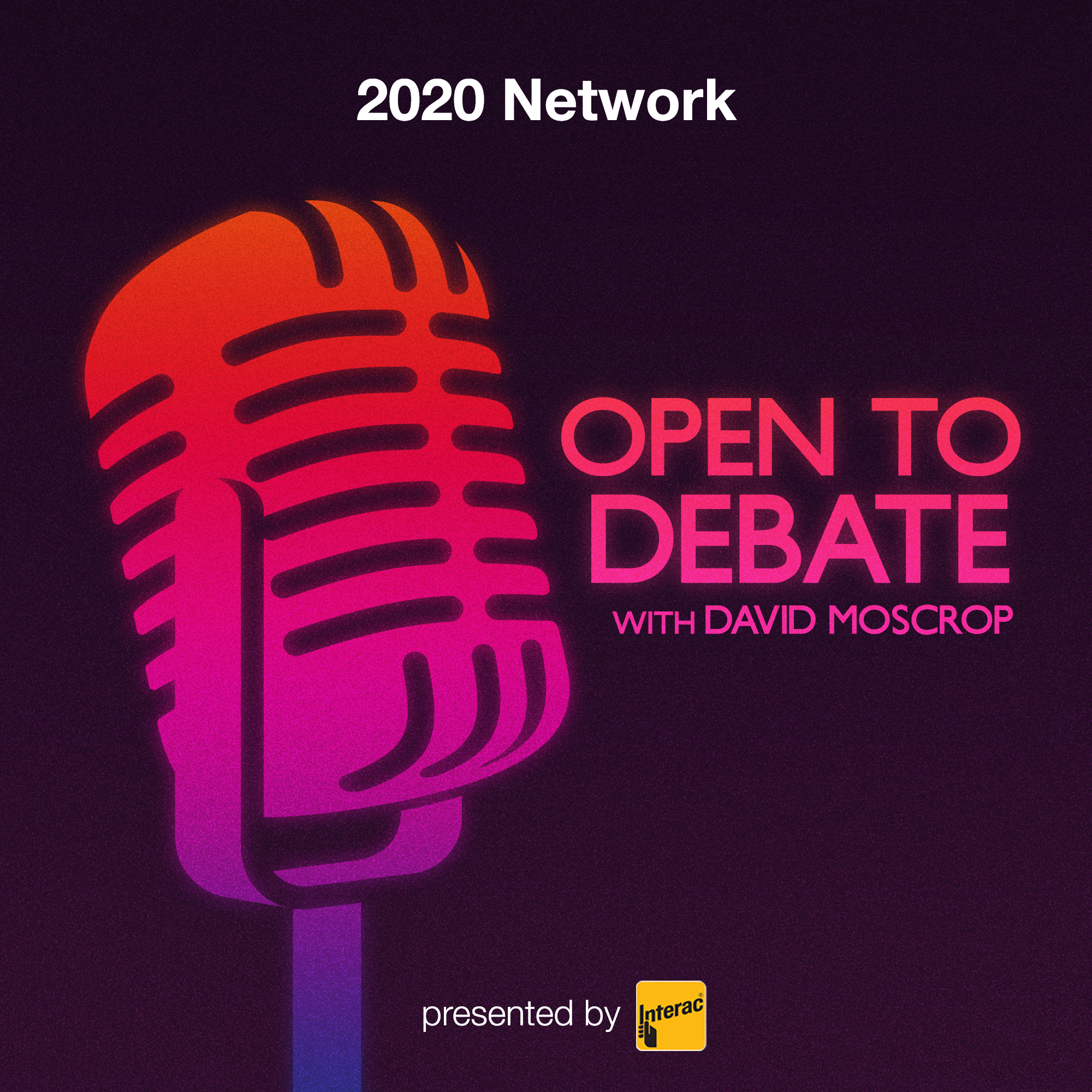 The 2020 NetworkOpen to Debate: Should we adopt vaccine certification programs?In Canada and around the world, anxious, weary populations are looking forward to returning to something that will approximate normal life. That return is predicated on, among other things, mass Covid-19 vaccination efforts that continue along slow and steady.
As more of us get the jab, states, including Canada, are considering vaccine certification programs for domestic use, foreign travel, or both. But concerned individuals, including health, privacy, and social science experts, are raising a number of concerns with the idea. While a vaccine “passport” might intuitively seem like a good idea, it’s fraught with risks and trade...2021-04-2744 min
The 2020 NetworkOpen to Debate: Should we adopt vaccine certification programs?In Canada and around the world, anxious, weary populations are looking forward to returning to something that will approximate normal life. That return is predicated on, among other things, mass Covid-19 vaccination efforts that continue along slow and steady.
As more of us get the jab, states, including Canada, are considering vaccine certification programs for domestic use, foreign travel, or both. But concerned individuals, including health, privacy, and social science experts, are raising a number of concerns with the idea. While a vaccine “passport” might intuitively seem like a good idea, it’s fraught with risks and trade...2021-04-2744 min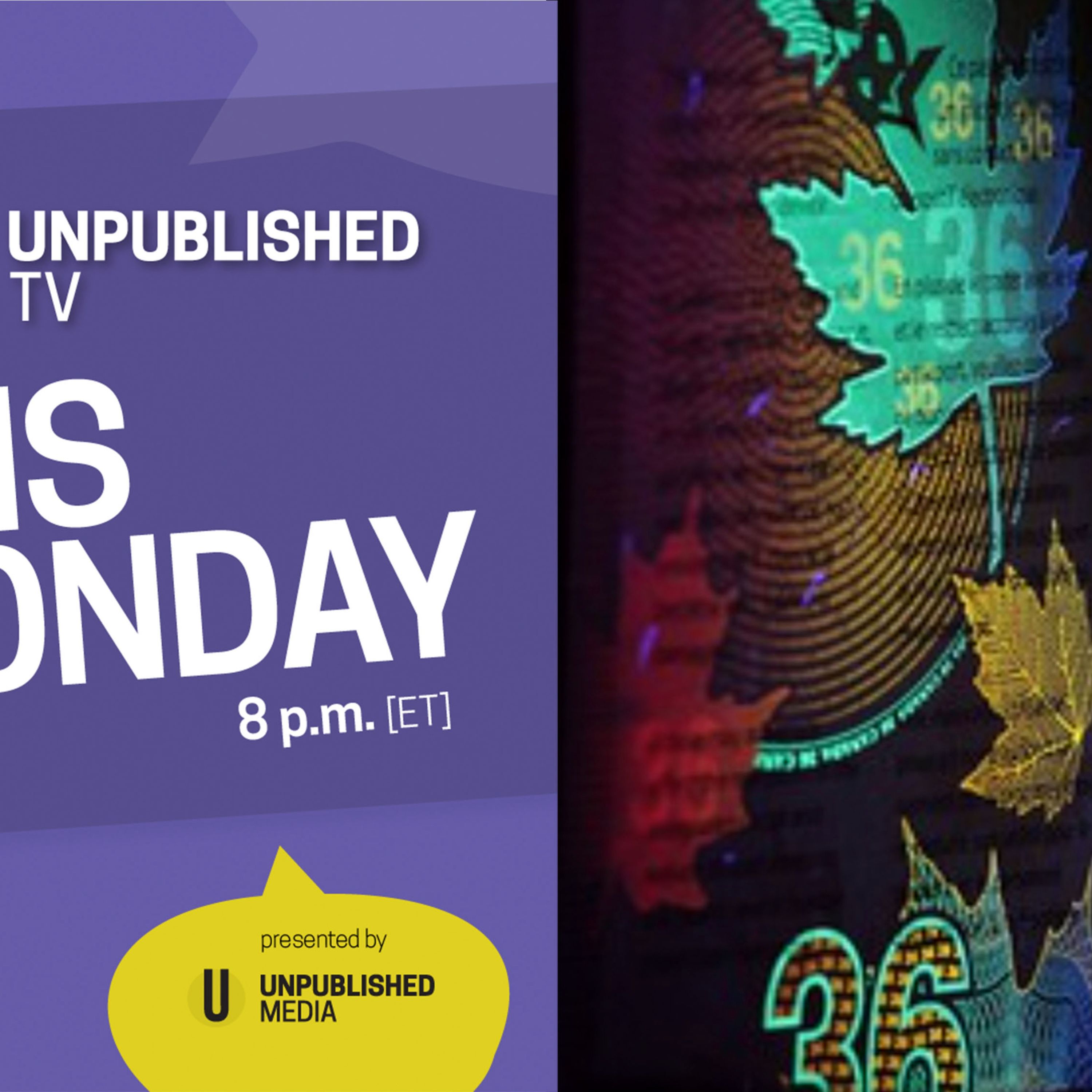 Unpublished CafeUnpublishedTV: COVID-19 Vaccine PassportsAfter more than a year of physical distancing, quarantine and lockdowns in the Covid pandemic, vaccine passports are seen as something to bring us together...or divide us even more. GUESTS: Lori Turnbull Director School of Public Administration at Dalhousie University Marcus Kolga Founder Disinfowatch.org / Sr.Fellow MacDonald-Laurier Institute Francoise Baylis University Research Professor Bioethics Dalhousie University Marvin Ryder Assistant Professor DeGroote School of Business McMaster University.
2021-03-2333 min
Unpublished CafeUnpublishedTV: COVID-19 Vaccine PassportsAfter more than a year of physical distancing, quarantine and lockdowns in the Covid pandemic, vaccine passports are seen as something to bring us together...or divide us even more. GUESTS: Lori Turnbull Director School of Public Administration at Dalhousie University Marcus Kolga Founder Disinfowatch.org / Sr.Fellow MacDonald-Laurier Institute Francoise Baylis University Research Professor Bioethics Dalhousie University Marvin Ryder Assistant Professor DeGroote School of Business McMaster University.
2021-03-2333 min Unpublished CafeCOVID-19: Vaccine PassportsPUBLISHED: 19/02/2021We’ve passed the one year mark of the pandemic this week in Canada.Economically, the country has been savaged by the lockdowns to curb the spread, in particular now that there are more contagious variants. Vaccines are being distributed giving many the impression that we are out of the woods, but the economic recovery will be much slower. Can vaccine passports help open up the economy again?The Canada US border has been closed for non-essential travel for a year now. It has had a hue impact on the travel and to...2021-03-1229 min
Unpublished CafeCOVID-19: Vaccine PassportsPUBLISHED: 19/02/2021We’ve passed the one year mark of the pandemic this week in Canada.Economically, the country has been savaged by the lockdowns to curb the spread, in particular now that there are more contagious variants. Vaccines are being distributed giving many the impression that we are out of the woods, but the economic recovery will be much slower. Can vaccine passports help open up the economy again?The Canada US border has been closed for non-essential travel for a year now. It has had a hue impact on the travel and to...2021-03-1229 min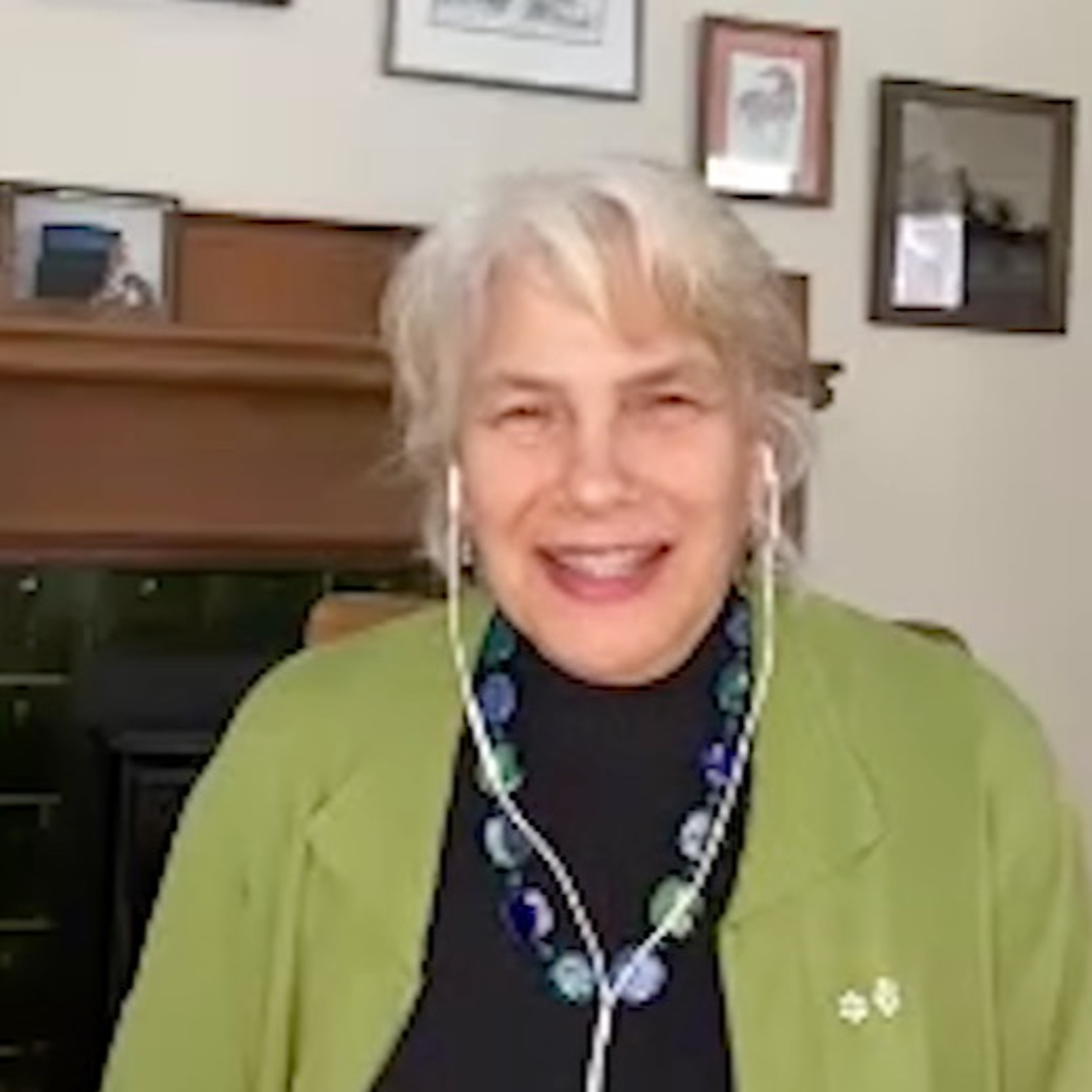 UO TodayUO Today with Françoise BaylisFrançoise Baylis is a bioethicist and a University Research Professor at Dalhousie University in Halifax, Nova Scotia, and author of "Altered Inheritance: CRISPR and the Ethics of Human Genome Editing." She discusses some of the ethical issues surrounding gene editing technology and the need for "slow science." Baylis also talks about the COVID-19 pandemic and the ethics of immunity passports and vaccine certificates.2021-02-0934 min
UO TodayUO Today with Françoise BaylisFrançoise Baylis is a bioethicist and a University Research Professor at Dalhousie University in Halifax, Nova Scotia, and author of "Altered Inheritance: CRISPR and the Ethics of Human Genome Editing." She discusses some of the ethical issues surrounding gene editing technology and the need for "slow science." Baylis also talks about the COVID-19 pandemic and the ethics of immunity passports and vaccine certificates.2021-02-0934 min RedeyeProposed digital vaccination 'passport' raises scientific and ethical concernsAs the world struggles with the second wave of the pandemic and vaccines are being rolled out, we are starting to hear calls for an app that could store a record of a Covid-19 vaccination. Françoise Baylis is a philosopher with a special interest in medical ethics. She tells us some of her concerns with how a vaccination record for Covid-19 could be used.2021-01-3019 min
RedeyeProposed digital vaccination 'passport' raises scientific and ethical concernsAs the world struggles with the second wave of the pandemic and vaccines are being rolled out, we are starting to hear calls for an app that could store a record of a Covid-19 vaccination. Françoise Baylis is a philosopher with a special interest in medical ethics. She tells us some of her concerns with how a vaccination record for Covid-19 could be used.2021-01-3019 min GES Center Lectures, NC State UniversityNatalie Kofler & Alex Pearlman - COVID-19 Immunity Passports and DIY VaccinesGenetic Engineering and Society Center
GES Colloquium - Tuesdays 12-1PM (via Zoom) NC State University | http://go.ncsu.edu/ges-colloquium
GES Mediasite - See videos, full abstracts, speaker bios, and slides https://go.ncsu.edu/ges-mediasite
Twitter - https://twitter.com/GESCenterNCSU
Despite limited scientific data, governments around the world are exploring COVID-19 immunity passport programs. At the same time, groups have emerged who have developed, promoted, and tested on themselves and others, “DIY” COVID-19 vaccines; potentially enabling more individuals to attain immunity passports; while the rest of the world wait...2020-08-121h 00
GES Center Lectures, NC State UniversityNatalie Kofler & Alex Pearlman - COVID-19 Immunity Passports and DIY VaccinesGenetic Engineering and Society Center
GES Colloquium - Tuesdays 12-1PM (via Zoom) NC State University | http://go.ncsu.edu/ges-colloquium
GES Mediasite - See videos, full abstracts, speaker bios, and slides https://go.ncsu.edu/ges-mediasite
Twitter - https://twitter.com/GESCenterNCSU
Despite limited scientific data, governments around the world are exploring COVID-19 immunity passport programs. At the same time, groups have emerged who have developed, promoted, and tested on themselves and others, “DIY” COVID-19 vaccines; potentially enabling more individuals to attain immunity passports; while the rest of the world wait...2020-08-121h 00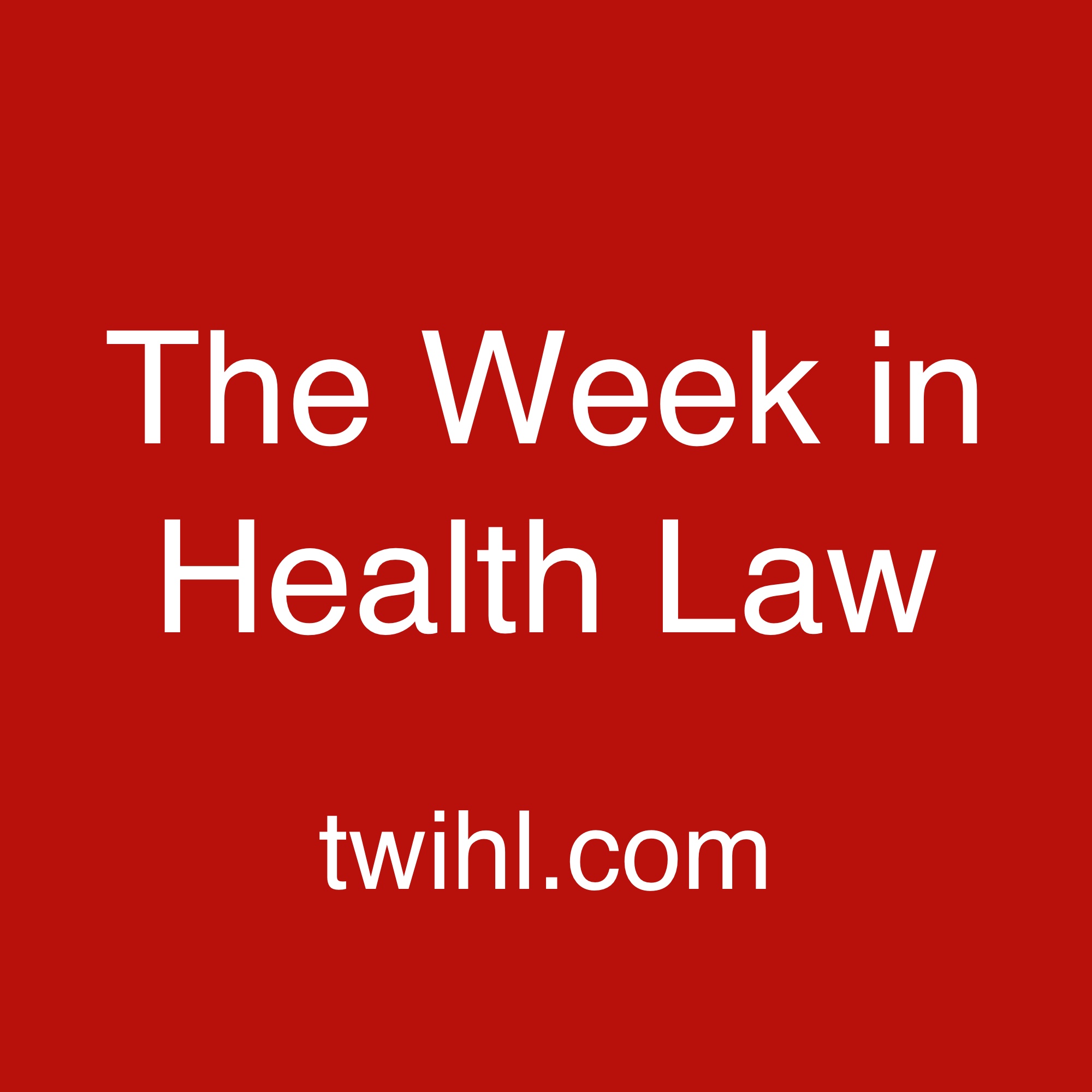 The Week in Health Law178. Germline Ethics. Guest, Françoise Baylis.I welcome Dr. Françoise Baylis, University Research Professor at the NTE Impact Ethics interdisciplinary research team based at the Faculty of Medicine, Dalhousie University in Halifax Canada. She is a member of the Order of Canada and the Order of Nova Scotia, as well as a Fellow of the Royal Society of Canada and a Fellow of the Canadian Academy of Health Sciences. In 2017 she was awarded the Canadian Bioethics Society Lifetime Achievement Award. She is a distinguished researcher and prolific scholar with 200 or so books, refereed publications and chapters to her name. Her latest book published by Harvard U...2020-03-1600 min
The Week in Health Law178. Germline Ethics. Guest, Françoise Baylis.I welcome Dr. Françoise Baylis, University Research Professor at the NTE Impact Ethics interdisciplinary research team based at the Faculty of Medicine, Dalhousie University in Halifax Canada. She is a member of the Order of Canada and the Order of Nova Scotia, as well as a Fellow of the Royal Society of Canada and a Fellow of the Canadian Academy of Health Sciences. In 2017 she was awarded the Canadian Bioethics Society Lifetime Achievement Award. She is a distinguished researcher and prolific scholar with 200 or so books, refereed publications and chapters to her name. Her latest book published by Harvard U...2020-03-1600 min Carnegie Council PodcastsGene Editing, Slow Science, & Public Empowerment, with Françoise BaylisIn the fourth podcast in Carnegie Council's gene editing podcast series, Dalhousie University's Professor Françoise Baylis, author of "Altered Inheritance," explains what "slow science" and "broad societal consensus" mean when it comes to this technology. She also details why public empowerment is vital for ethical gene editing and wonders if some of these procedures will stay in the realm of science fiction.2019-12-1836 min
Carnegie Council PodcastsGene Editing, Slow Science, & Public Empowerment, with Françoise BaylisIn the fourth podcast in Carnegie Council's gene editing podcast series, Dalhousie University's Professor Françoise Baylis, author of "Altered Inheritance," explains what "slow science" and "broad societal consensus" mean when it comes to this technology. She also details why public empowerment is vital for ethical gene editing and wonders if some of these procedures will stay in the realm of science fiction.2019-12-1836 min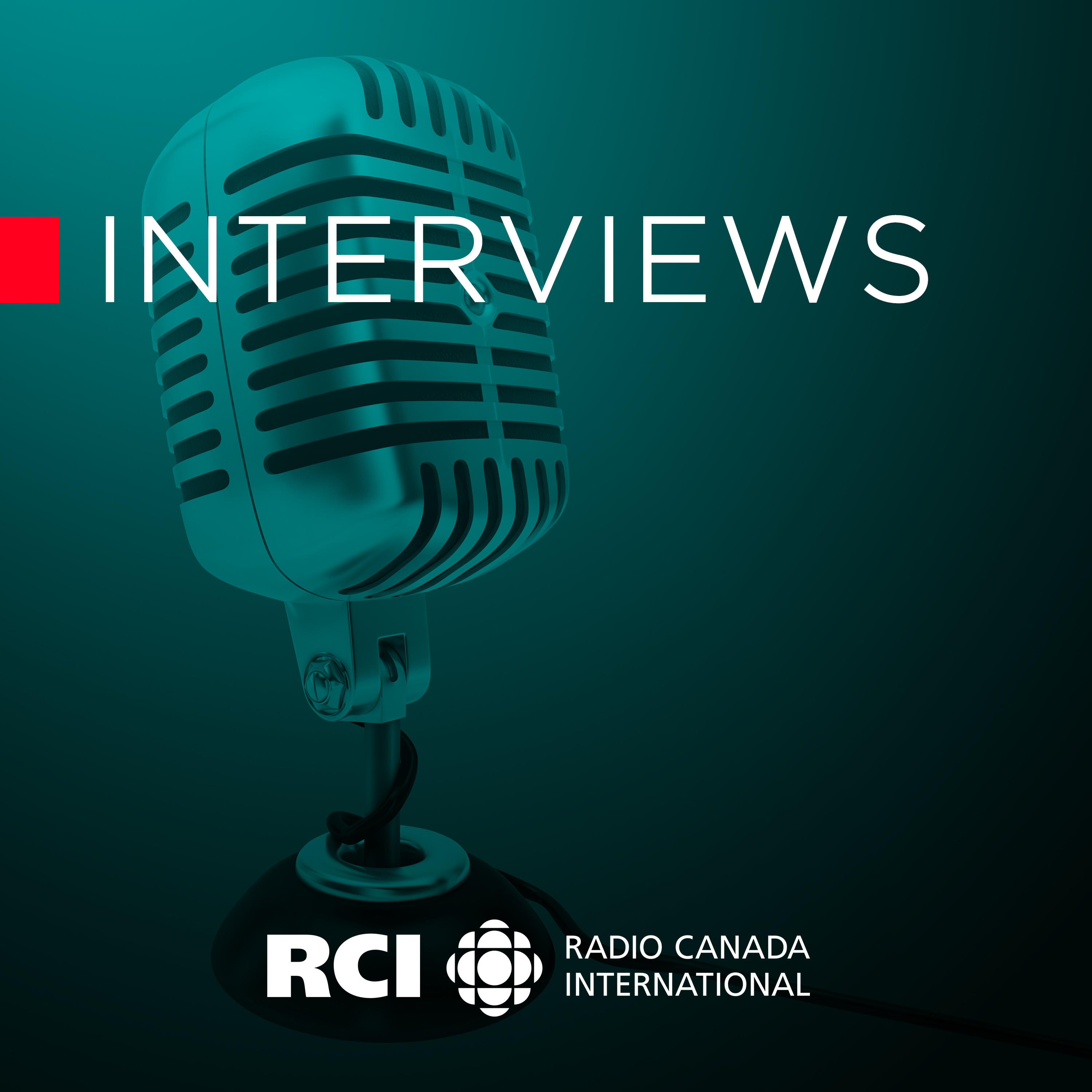 RCI | English : InterviewsCRISPR: Ethics and the gene editing of humansBy making genetic research so much easier, the recent technology known as CRISPR has allowed scientists an enormous advantage in research into so many areas.
Unfortunately there’s a downside which raises serious ethical questions.
Françoise Baylis (CM, ONS, PhD, FRSC, FCAHS), is a research professor at Dalhousie University Halifax who has written on the subject.
ListenEN_Interview_1-20191212-WIE10
The concern with gene-editing is with experiments into modification of human DNA, which could lead in theory to changing of the human genome forever. It could in theory enable creating “designer babies”. Indeed it’s been just over a year sinc...2019-12-1208 min
RCI | English : InterviewsCRISPR: Ethics and the gene editing of humansBy making genetic research so much easier, the recent technology known as CRISPR has allowed scientists an enormous advantage in research into so many areas.
Unfortunately there’s a downside which raises serious ethical questions.
Françoise Baylis (CM, ONS, PhD, FRSC, FCAHS), is a research professor at Dalhousie University Halifax who has written on the subject.
ListenEN_Interview_1-20191212-WIE10
The concern with gene-editing is with experiments into modification of human DNA, which could lead in theory to changing of the human genome forever. It could in theory enable creating “designer babies”. Indeed it’s been just over a year sinc...2019-12-1208 min The Dissenter#105 Françoise Baylis: The Ethics of CRISPR-cas9 Gene Editing Technology------------------Support the channel------------
Patreon: https://www.patreon.com/thedissenter
PayPal: paypal.me/thedissenter
------------------Follow me on---------------------
Facebook: https://www.facebook.com/thedissenteryt/
Twitter: https://twitter.com/TheDissenterYT
Dr. Françoise Baylis is University Research Professor at Dalhousie University, Canada. She is a frequent guest on CBC and Radio Canada. The focus of her research is on issues of women's health and assisted reproductive technologies, but her research and publication record also extend to such topics as research involving humans (including human embryo research), gene e...2019-06-2846 min
The Dissenter#105 Françoise Baylis: The Ethics of CRISPR-cas9 Gene Editing Technology------------------Support the channel------------
Patreon: https://www.patreon.com/thedissenter
PayPal: paypal.me/thedissenter
------------------Follow me on---------------------
Facebook: https://www.facebook.com/thedissenteryt/
Twitter: https://twitter.com/TheDissenterYT
Dr. Françoise Baylis is University Research Professor at Dalhousie University, Canada. She is a frequent guest on CBC and Radio Canada. The focus of her research is on issues of women's health and assisted reproductive technologies, but her research and publication record also extend to such topics as research involving humans (including human embryo research), gene e...2019-06-2846 min Empowered HealthWhat is CRISPR? Francoise Baylis talks futurism, gene-edited babies, and bioethicsIn November 2018, Chinese scientist He Jiankui announced the birth of the first CRISPR babies. You may have seen CRISPR popping up in science news over the past few years, but still don't really understand what it is. This week, bioethicist Francoise Baylis breaks down what exactly this gene-editing technology could mean for humanity, from futuristic super senses to disease-resistant babies. 2019-06-0351 min
Empowered HealthWhat is CRISPR? Francoise Baylis talks futurism, gene-edited babies, and bioethicsIn November 2018, Chinese scientist He Jiankui announced the birth of the first CRISPR babies. You may have seen CRISPR popping up in science news over the past few years, but still don't really understand what it is. This week, bioethicist Francoise Baylis breaks down what exactly this gene-editing technology could mean for humanity, from futuristic super senses to disease-resistant babies. 2019-06-0351 min Franchement dit - Jonathan TrudeauMardi 27 novembreL'édito de Jonathan Entrevue avec Eric Caire, ministre délégué à la transformation numérique gouvernementale : Des solutions numériques simples et conviviales. Discussion avec Claude Villeneuve, directeur Opinions au Journal de Montréal - Journal de Québec. Entrevue avec Francoise Baylis, spécialiste de la bioéthique à l'Université Dalhousie : Des jumelles modifiées génétiquement en Chine. Une production de QUB radioNovembre 2018Pour de l’information concernant l’utilisation de vos données personnelles - https://omnystudio.com/policies/listener/fr2018-11-2747 min
Franchement dit - Jonathan TrudeauMardi 27 novembreL'édito de Jonathan Entrevue avec Eric Caire, ministre délégué à la transformation numérique gouvernementale : Des solutions numériques simples et conviviales. Discussion avec Claude Villeneuve, directeur Opinions au Journal de Montréal - Journal de Québec. Entrevue avec Francoise Baylis, spécialiste de la bioéthique à l'Université Dalhousie : Des jumelles modifiées génétiquement en Chine. Une production de QUB radioNovembre 2018Pour de l’information concernant l’utilisation de vos données personnelles - https://omnystudio.com/policies/listener/fr2018-11-2747 min CMAJ PodcastsFreezing fertility: risks and benefits of social egg freezingSend us a textDr. Moneeza Walji, editorial fellow, interviews Dr. Angel Petropanagos, postdoctoral fellow at Dalhousie University in Halifax. Some women who anticipate fertility decline due to the natural aging process may now choose to freeze their eggs to preserve their future fertility. Dr. Petropanagos discusses the benefits, risks, ethical concerns and societal implications of this practice to provide family physicians with the tools to offer balanced information to clients who seek it. Dr. Petropanagos has co-authored an analysis article with Alana Cattapan MA, Françoise Baylis PhD, Arthur Leader MD, published in CMAJ on April 13, 2015. Full a...2015-04-0915 min
CMAJ PodcastsFreezing fertility: risks and benefits of social egg freezingSend us a textDr. Moneeza Walji, editorial fellow, interviews Dr. Angel Petropanagos, postdoctoral fellow at Dalhousie University in Halifax. Some women who anticipate fertility decline due to the natural aging process may now choose to freeze their eggs to preserve their future fertility. Dr. Petropanagos discusses the benefits, risks, ethical concerns and societal implications of this practice to provide family physicians with the tools to offer balanced information to clients who seek it. Dr. Petropanagos has co-authored an analysis article with Alana Cattapan MA, Françoise Baylis PhD, Arthur Leader MD, published in CMAJ on April 13, 2015. Full a...2015-04-0915 min Needs No IntroductionSexualized violence on our campusesWhen posts in a Facebook group joking about having "hate-sex" and chloroforming women were made public, the anonymous members of "Class of DDS 2015 Gentlemen" were instantly infamous. As calls for a response from Dalhousie grew, however, the university equivocated, mired in a controversy for which it seemed to have no response. As of January 12, the 13 students, though suspended from clinical duties, will return to study in courses taught separately from their classmates. In a year rife with well-publicized cases of misogyny -- including a frosh week "rape chant" at another Halifax university -- it was clear that even...2015-01-131h 09
Needs No IntroductionSexualized violence on our campusesWhen posts in a Facebook group joking about having "hate-sex" and chloroforming women were made public, the anonymous members of "Class of DDS 2015 Gentlemen" were instantly infamous. As calls for a response from Dalhousie grew, however, the university equivocated, mired in a controversy for which it seemed to have no response. As of January 12, the 13 students, though suspended from clinical duties, will return to study in courses taught separately from their classmates. In a year rife with well-publicized cases of misogyny -- including a frosh week "rape chant" at another Halifax university -- it was clear that even...2015-01-131h 09